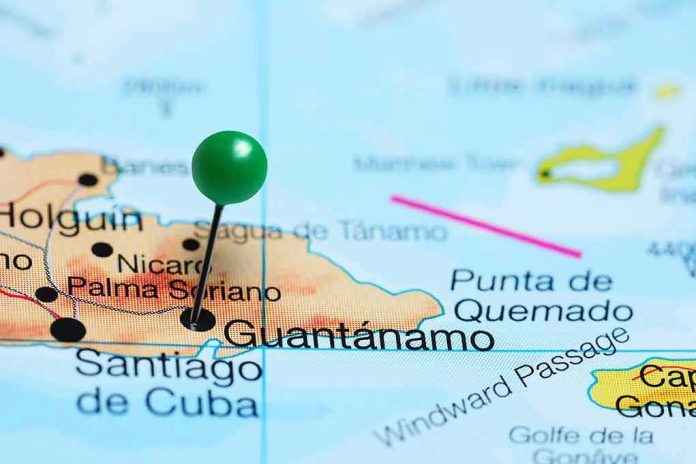
Russia’s recruitment of 20,000 Cuban mercenaries for the Ukraine war reveals a startling geopolitical maneuver with severe implications for US security and Cuban sovereignty.
Story Snapshot
- Russia has recruited 20,000 Cuban mercenaries to fight in Ukraine.
- Ukrainian intelligence presented these findings to US lawmakers.
- Cuban recruits face dangerous conditions, often deceived by false promises.
- Cuba is now the largest source of foreign fighters for Russia in Ukraine.
Russia’s Strategic Use of Cuban Mercenaries
In a move that has raised alarm bells across international communities, Russia has reportedly recruited at least 20,000 Cuban citizens as mercenaries to bolster its military efforts in Ukraine. This information, provided by Ukrainian military intelligence, highlights Cuba as the primary source of foreign fighters for Russia. The revelation was made during a national security briefing to US lawmakers, underscoring the significant scale and systematic nature of the recruitment process.
Many of these Cuban recruits were deceived by promises of lucrative contracts, only to find themselves in perilous conditions on the front lines. Between June 2023 and February 2024, over 1,000 Cubans signed formal contracts with the Russian military. The Cuban government’s role in this recruitment drive remains a contentious issue, with official denials clashing against evidence suggesting possible complicity or at least awareness.
The Humanitarian and Geopolitical Implications
The large-scale recruitment of Cuban citizens as mercenaries for the Russian military in Ukraine has far-reaching humanitarian and geopolitical implications. Economically vulnerable Cubans, lured by false promises of security and construction jobs, face high mortality risks and deplorable conditions. The Cuban government’s denial of involvement has not quelled suspicions of tacit approval or facilitation of these recruitment efforts.
The geopolitical ramifications are also significant, with Cuba’s participation potentially straining relations with the US and the European Union. The involvement of US lawmakers signifies the international concern over this issue, with potential sanctions and punitive measures against Cuba being discussed. However, no major actions have been taken yet, leaving the situation in a precarious status quo.
Impact on International Relations and Security
This development raises critical concerns regarding regional security and the expansion of Russian influence in the Western Hemisphere. The recruitment of Cuban mercenaries serves as a stark reminder of Russia’s strategic maneuvers to bolster its military capabilities amidst manpower shortages. The Cuban recruits, trained in Russian-occupied Crimea, represent a new chapter in mercenary recruitment from economically distressed nations.
As international calls for action grow louder, the situation demands a careful examination of the roles and motivations of all parties involved. The Cuban government, while denying official involvement, faces increased scrutiny, and the broader implications for US-Cuba relations and regional stability remain a significant concern for policymakers and analysts alike.



